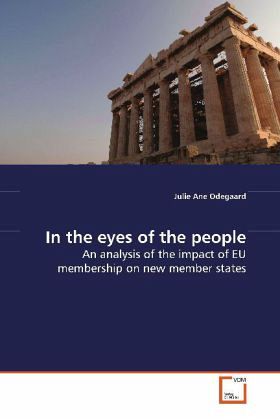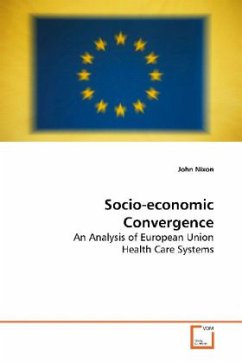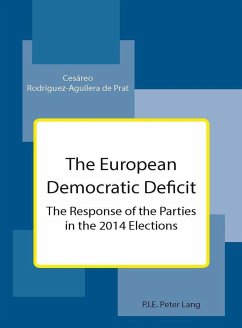
In the eyes of the people
An analysis of the impact of EU membership on new member states
Versandkostenfrei!
Versandfertig in 6-10 Tagen
32,99 €
inkl. MwSt.

PAYBACK Punkte
16 °P sammeln!
On the first of May 2004 ten new countries becamemembers of the European Union bringing 75 millionpeople into the Union, and the expansion was thelargest and most ambitious in the history of the EU.Considering the maze of complexities linked to thecountries different political, economic andhistorical contexts, this enlargement was anespecially tangled case. Based on the citizen`sperceptions of the benefits of EU membership thequestion addressed is: What can explain whether ornot the EU membership is considered a country benefit?This study moves beyond the predominant single-casedesign in enlar...
On the first of May 2004 ten new countries became
members of the European Union bringing 75 million
people into the Union, and the expansion was the
largest and most ambitious in the history of the EU.
Considering the maze of complexities linked to the
countries different political, economic and
historical contexts, this enlargement was an
especially tangled case. Based on the citizen`s
perceptions of the benefits of EU membership the
question addressed is: What can explain whether or
not the EU membership is considered a country benefit?
This study moves beyond the predominant single-case
design in enlargement research, and uses a
comparative approach analyzing the impact of EU
enlargement on the Central European, Eastern European
and Mediterranean states.
members of the European Union bringing 75 million
people into the Union, and the expansion was the
largest and most ambitious in the history of the EU.
Considering the maze of complexities linked to the
countries different political, economic and
historical contexts, this enlargement was an
especially tangled case. Based on the citizen`s
perceptions of the benefits of EU membership the
question addressed is: What can explain whether or
not the EU membership is considered a country benefit?
This study moves beyond the predominant single-case
design in enlargement research, and uses a
comparative approach analyzing the impact of EU
enlargement on the Central European, Eastern European
and Mediterranean states.












